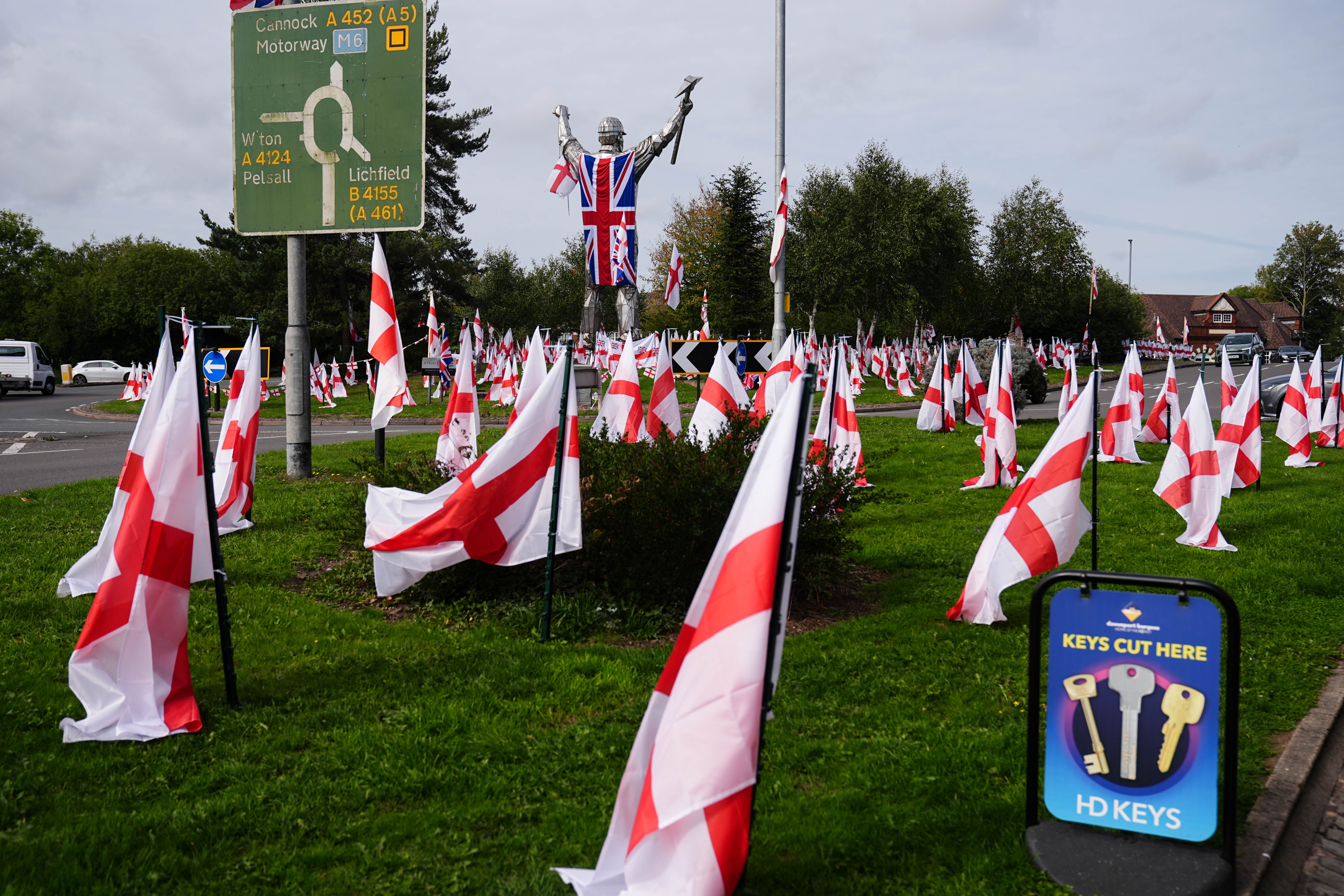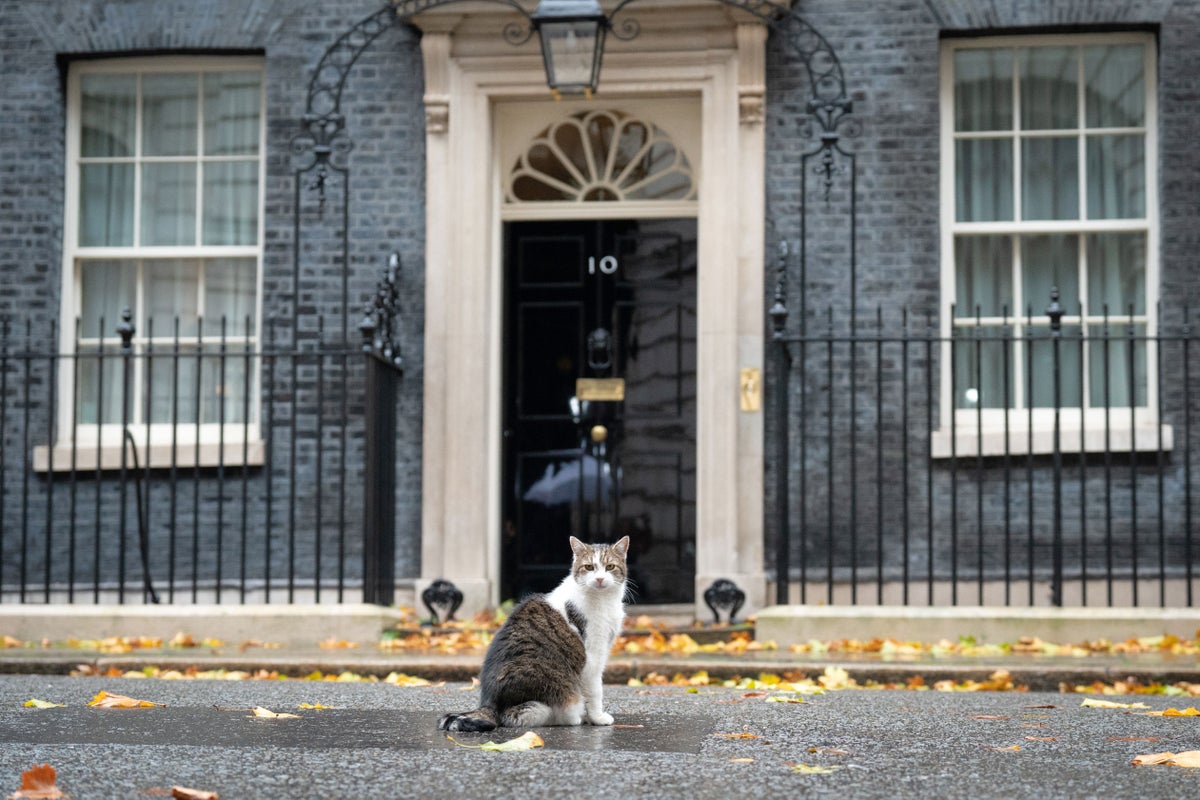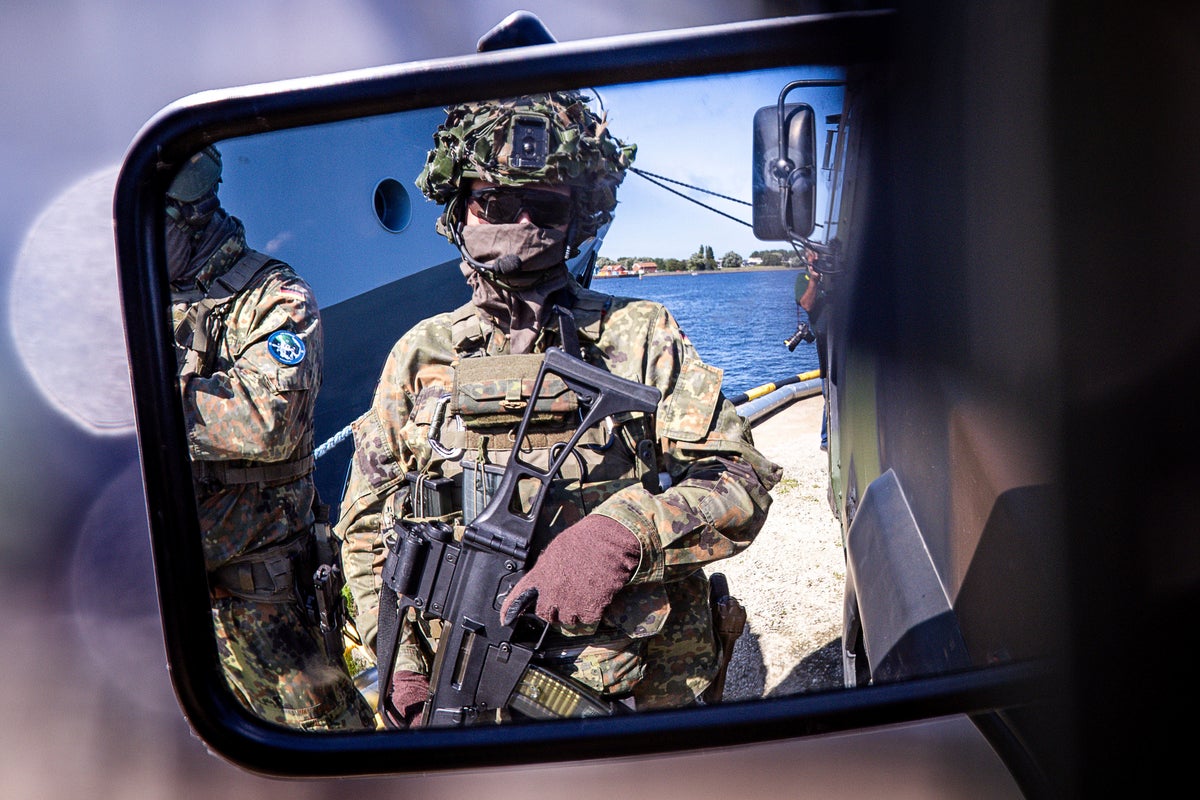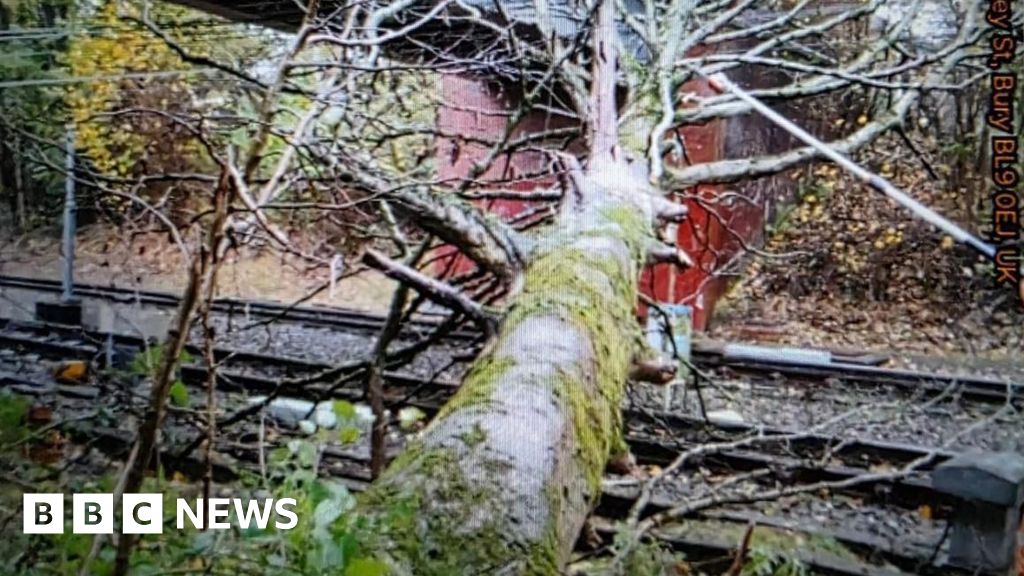Operation Raise the Colours has swelled the nation with pride as motorists flash under bridges and pedestrians doff their flat caps to England’s red cross and the union flag. By jingo it’s been fun. For those who see the world through Commando Comics and the redcoat glory of Michael Caine’s heroics in Zulu.
Strange then, that the nostalgists of Britain’s right wing are not queuing outside recruitment centres clamouring to join a real army as their country is already in a hybrid war that could turn outright within months.
Germany’s on the march, though.
If that phrase sends a jolt through anyone, that’s because they’re looking in the wrong direction. Britain, and the rest of Europe, is facing the greatest threat to its democratic way of life and to the landmass that sustains it since 1945.
But in Britain, the loudest “patriots” campaign against immigrants who are here because they want to share in the glories of Britannia, but are silent on defending Britain against Russia, which wants to smash the place to bits.

The UK is being left behind as its allies in Europe are fast waking up to the fact that history is being thrust upon them by what Vladimir Putin is doing in Ukraine and what he’s telegraphed he wants to do to the rest of Eastern Europe.
Even Germany, once constitutionally banned from having an effective army after the Nazi era, is planning to swell its ranks.
This week, Berlin announced that all 18-year-old men will go through a compulsory medical screening for the military as part of plans to expand the Bundeswehr from 182,000 today to 260,000 by 2035. Germany wants to increase the reserve forces from 60,000 to 200,000.
It is hoped that the expansion will be voluntary, but laws remain on the statute to bring back national service, which ended in 2011.
It has plans to become one of the biggest defence forces in Europe and Nato. In four years, Germany’s defence spending is expected to surge to €153bn (£135bn) a year, 3.5 per cent of GDP. The UK’s is likely to be about £75bn and France’s around €80bn.
Berlin’s massive expansion into weapons production includes a policy to spend only about 10 per cent of its funds on American weapons to keep the jobs and benefits of government spending inside Germany and Europe.
Germany will eclipse France and the UK in terms of size and influence inside European defence systems and Nato. So will Poland, which is already spending 4.7 per cent of GDP on defence, well ahead of the commitment by other Nato nations to reach 3.5 per cent.

Warsaw has also introduced military training for every adult male in the country.
“We will try to have a ready model by the end of this year so that every adult male in Poland is trained in the event of war,” Poland’s prime minister Donald Tusk said in May last year. “So that this reserve [force] is truly matched to and sufficient to meet potential threats.”
Britain’s military recruitment targets are aimed at increasing the full-time trained strength of the army, Royal Navy, and Royal Air Force. But the response has been woeful. The army is 3 per cent below its target of around 10,000 new recruits in order to raise the full-time force to 76,000.
The RN is worse off, missing its targets by 8 per cent and the RAF is the worst performing at 13 per cent below target numbers.
The UK will spend an extra £2.2bn on defence in 2025-26 alone, bringing the total to more than £62.2bn, with the increased spending focused on modernising military capabilities, including new weapon systems, drones, AI-powered tech, and “directed energy weapons” – lasers.
There’s a huge effort to spend more on some 7,000 new weapons systems and submarines, including nuclear-powered boats.
Keir Starmer and French president Emmanuel Macron have led Europe in building support for Ukraine in its defence against Russia, as American support was cut off entirely by Donald Trump.
But unlike Germany, Poland, the Baltic states, and Croatia (which has reintroduced compulsory national service for men), Britain has yet to make the case to the British that their patriotism should be expressed in uniform rather than on bridges and lamp posts.




